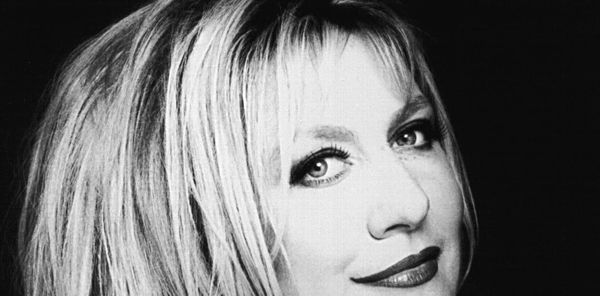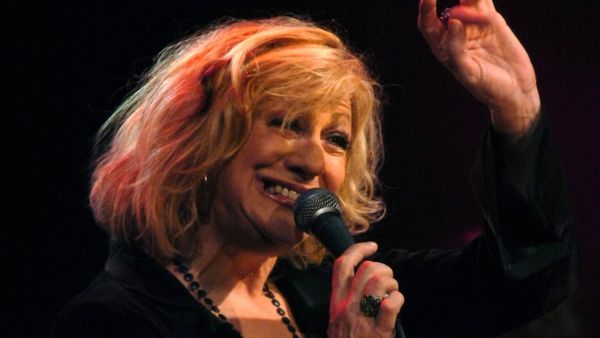
Renée Geyer was many things in a career that spanned 15 studio albums and 50 years, and she continued singing to packed houses up to only a month ago. She was surely the finest white soul singer, male or female, that Australia has produced, but to speak only of her immense talent does not capture what she was about; her real greatness.
Geyer was, above all, unapologetic. It was this attitude that defined her, as much as her singing. Paul Kelly, who became a close friend, recognised it when he wrote Difficult Woman for her, knowing full well how she would respond. Women, after all, are always the ones thought to be difficult, never men.
But line by line Geyer peeled the song apart, exposing the vulnerability beneath the steel of the titular character. The singer and actor Lo Carmen in her 2022 book Lovers Dreamers Fighters wrote that “she wore the title like a crown” in the knowledge that it would come at great cost. Indeed, it already had.
Difficult Woman was released in 1994, and it relaunched Geyer’s career in Australia after nearly a decade living in Los Angeles. But Geyer’s transformative presence had been apparent 20 years earlier, with her third single, a heart-stopping rendition of James Brown’s It’s a Man’s Man’s World. It did for the song what Aretha Franklin had for Otis Redding’s Respect.
The single only just cracked the Australian Top 30; that it wasn’t an international smash on par with Helen Reddy’s I Am Woman – a song that Geyer professed to hate – is one of the many injustices that plagued her career. She never had a Top 10 album, but then, she never did anything less than her way, either.

Many of those records are classics, starting with 1975’s Ready to Deal, the first album co-written and co-produced by a woman in Australia. It included the swooning single Heading in the Right Direction, and the lusty Sweet Love, which opened with a bald declaration: “I just want to copulate.” It was banned from airplay, and a single was hurriedly withdrawn.
Even after that debacle, Heading in the Right Direction should have broken her in the US, where It’s a Man’s Man’s World had failed. American radio initially loved it, believing her to be Black. Geyer then demanded they put her “big, pink Australian Jewish face” on the cover of the single, whereupon the same radio programmers quickly lost interest.
Geyer, as the song said, was always on the outside. Asked once if she thought she would emulate the success of Reddy and Olivia Newton-John, Geyer replied: no, because “I’m not a very well-behaved person”. Geyer wasn’t afraid to tell the truth about herself; in her memoir (also titled Difficult Woman) she confessed to three clinical deaths from drug overdoses.
She got luckier with Say I Love You, a glorious cover of Eddy Grant’s calypso song that became her biggest hit, reaching No 5 nationally in 1981. Geyer could summon anything a song required: her voice was naturally low, with a guttural edge she often leaned on, but here it was as fresh and joyous as a Caribbean breeze.
Difficult Woman aside, her output from her 1990s revival has been overlooked. Sweet Life, from 1998, punned on Sweet Love and furthered her collaboration with Kelly, who gave her You Broke a Beautiful Thing and Cake and the Candle. The latter summed up her lust for life: she wanted the lot.

But Geyer’s ambition and versatility made her unclassifiable in Australia’s small market. She sang for everyone from Jackson Browne to Julio Iglesias, and later worked with independent artists such as Spencer P Jones and Even. But she was always considered too mainstream for the indie market, and was far too independent herself to be easy fodder for the mainstream.
She was belatedly inducted into the Aria hall of fame in 2006, a mark of respect that also served as a quasi-apology from an industry that never fully understood her nor knew what to do with her. The late Michael Gudinski, who called her the greatest singer of his lifetime in Australia, put it this way: “Yes, you’re a difficult woman, but you’re bloody fantastic.”
Carmen wrote eloquently of the many things Geyer was on stage. “She was always a total pro, but she can also be cantankerous, messy, imperious, coquettish, hilarious, stately and wickedly fun. Sometimes in the one song. Definitely in one show.” Part of the allure, she said, was the sense of danger that surrounded her: she knew all about the dark stuff.
There was never enough room for her. But Geyer made space for other Australian women on stage – from Chrissy Amphlett on – to follow. The enormous hole left by her passing, however, is near impossible to fill. Her catalogue deserves an immediate and thorough reappraisal and reissue campaign. Her voice deserves nothing but worship.










